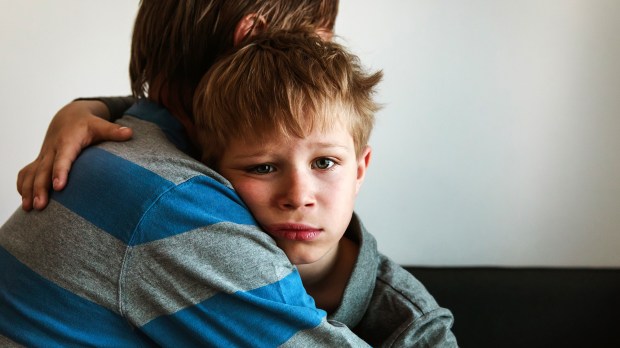When I was in my late teenage years, I experienced a bout of depression I wouldn’t wish on my worst enemy. It was, for the most part, a medical issue caused by chemical imbalances in my brain. Nothing particularly bad or traumatic had happened to me, which made the experience all the more frustrating. It had no cause that I could identify.
I will say, though, that I’ve always been melancholic, which leaves me prone to anxiety about my mortality. I think ahead to the idea of death and worry about the nature of existence. By the age of 35, I’d already had a mid-life crisis. Even as a teenager, I was already angst-ridden and in the grip of anxiety. By anxiety, I don’t mean I was fretful about anything in particular. It was more a state of dissatisfaction, a general unease that led to me questioning what my life was for and where it was heading.
Meanwhile, most of my friends were blissfully partying, playing sports, and chasing girls. It seemed like I was the only one dealing with anxiety.
A common malady
Well, if that was true then, it certainly is not true now. Children today who struggle with anxiety have lots of company. The CDC has reported that anxiety in children, a general sense of dissatisfaction and pressure, has been steadily increasing over the years. Even children who seem to be highly successful — academic achievers, star athletes, popular kids — are experiencing anxiety. As successful as they are, they still don’t think they’re good enough, and they have a vague feeling that life isn’t as it should be.
Childhood used to be a period of life in which everything was exciting and new. Kids didn’t have a care in the world. They spent time jumping in puddles and playing baseball in the park. In high school, it was all about hanging out with friends and trying to hold a girl’s hand. That type of carefree childhood is rapidly disappearing, as children now experience anxiety every bit as much as adults.
Why are children so anxious?
The causes are varied, ranging from depression and feelings of isolation to the stress caused by social media, to pressure from family to succeed academically. Kids today are growing up with smartphones in their hands. They’re exposed from a young age to television, sexualized content, violent video games, and the competition of looking effortlessly happy on social media. They’re not prepared for it and are emotionally overwhelmed, surrounded by constant stimulus from which they cannot escape. It’s like they’re always on stage and cannot get off. They don’t know how.
It makes me wonder, are parents inadvertently contributing to this anxiety through unreasonable expectations? How can we change the way we relate to them, so they have a better chance at developing into happy adults? I also wonder if there are other ways we can help to prepare them to deal with the pressures of growing up in the world today, and it there are fundamental truths that we ought to be teaching them.
Here’s how I think parents can help…
1
SET BOUNDARIES
Parents can be so motivated for their children to succeed that they inadvertently destroy their happiness. We desire that they would succeed where we failed and avoid our mistakes, but in communicating that desire, we make it seem as though the value of our children is tied up in their success. The message they take from it is that, if they meet our expectations, then we will love them. Parents need to set healthy boundaries and not pressure children beyond what’s reasonable. We can also emphasize that comparative evaluations of self-worth — say between themselves and their classmates — are outside the boundaries of healthy self-esteem.
As part of this effort, limiting social media is helpful.
2
SHIFT FROM ACHIEVEMENT TO CHARACTER
People ought to be valued by the quality of their character. Each of us can take pride if we’re able to live upright, modest, good lives surrounded by people we love. For many, though, it seems as though achievement is far more important than character, whether that be in academics, popularity in school, lots of extra-curriculars, and being good at sports. As parents we can show our children that those successes are irrelevant if the outside doesn’t match the inside. A successful person is a man or woman of character.
3
NO MORE UNREASONABLE EXPECTATIONS
Children need to be told, clearly and simply, that they don’t have to be the best at everything. In fact, they ought to get used to the idea that they cannot possibly be the valedictorian, star athlete, lead in the school play, and prom queen all at the same time. They only need to be themselves — good at some things and not so good at others. It helps if parents are able to spend quality time with their children simply playing around. It doesn’t always have to be practicing sports together or running lines for the school play. This way, children intuitively grasp that their parents aren’t viewing them as a project to be perfected, but rather, as a person to be loved.
4
PROVIDE A SPIRITUAL FOUNDATION
Growing up, I was repeatedly assured by my parents that there is a God who created me and loves me no matter what. Knowing that, I was set free to be myself. I knew I was valued, so there was no anxiety about the direction my life might take. I was able to take both success and failure in stride. In fact, it was this basic, fundamental truth that saved me during the difficult years of depression. I always knew that, no matter how bad I felt, it wouldn’t last forever.
I wonder what my life would have been like if I hadn’t had that Godly perspective to pull me out of my anxiety. Children need to know how to live and why to live – which is to be happy. Or, if you’re Catholic, you might phrase it as the goal in life is to become a saint. Parents assist their children immensely simply by taking them to church and praying with them. Anxiety sets in when hope decreases. A person who has a relationship with God always has hope.
In the end, dealing with anxiety is a tricky business. There’s no quick fix. But we do know that setting reasonable boundaries and expectations helps. It also helps to have a strong interior life and spirituality. Anxiety happens when we lose sight of who we are and where we’re going, so I always circle back to the basic truth that helped me back when I struggled with it: We are valued for exactly who we are, and we are surrounded by love.



